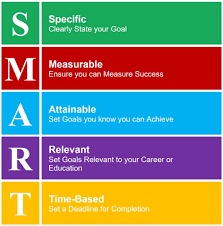Setting realistic fitness goals is crucial, especially for beginners embarking on their fitness journey. By understanding the importance of achievable objectives and sustainable progress, individuals can lay the foundation for long-term success and avoid unnecessary setbacks. In this article, we will explore key strategies to help beginners set realistic fitness goals that align with their capabilities and promote continuous improvement.
Assess your current fitness level! Before setting any fitness goals, it’s essential to assess your current fitness level. This evaluation allows you to gauge your strengths, weaknesses, and overall physical condition. Consider factors such as cardiovascular endurance, strength, flexibility, and body composition. By acknowledging your starting point, you can establish goals that are challenging yet attainable.
Set specific and measurable goals! Vague goals like “getting in shape” or “losing weight” can be difficult to track and measure progress. Instead, set specific and measurable goals that provide clarity and direction. For example, aim to run a mile in a certain time frame, increase the number of push-ups you can do, or decrease your body fat percentage by a specific amount. This way, you can track your progress and celebrate milestones along the way.
Be realistic and break it down! When setting fitness goals, it’s important to be realistic and avoid setting yourself up for disappointment. Recognize that significant changes take time, and progress may come in incremental steps.
Break down larger goals into smaller, achievable milestones. For instance, if your ultimate goal is to run a marathon, start by completing a 5K race, then work your way up to a 10K and so on. This approach helps build confidence and momentum.
Consider your lifestyle and commitments. Another crucial aspect of setting realistic fitness goals is considering your lifestyle and commitments. Take into account your work schedule, family obligations, and other activities when determining the frequency and duration of your workouts. Be honest with yourself about the time and effort you can realistically dedicate to fitness. By aligning your goals with your lifestyle, you increase the chances of maintaining consistency.
In conclusion, setting realistic fitness goals is vital for beginners on their fitness journey. By assessing your current fitness level, setting specific and measurable objectives, being realistic, and considering your lifestyle, you establish a solid foundation for success. Remember, sustainable progress takes time, and each small milestone achieved brings you closer to your ultimate goal. With realistic expectations and a commitment to continuous improvement, you’ll not only achieve your fitness goals but also enjoy the journey along the way.
Be sure to check out our instagram @theperformancefnatic or website www.performancefnatics.com for more workouts, tips, tricks, and more!
.png)







Commentaires